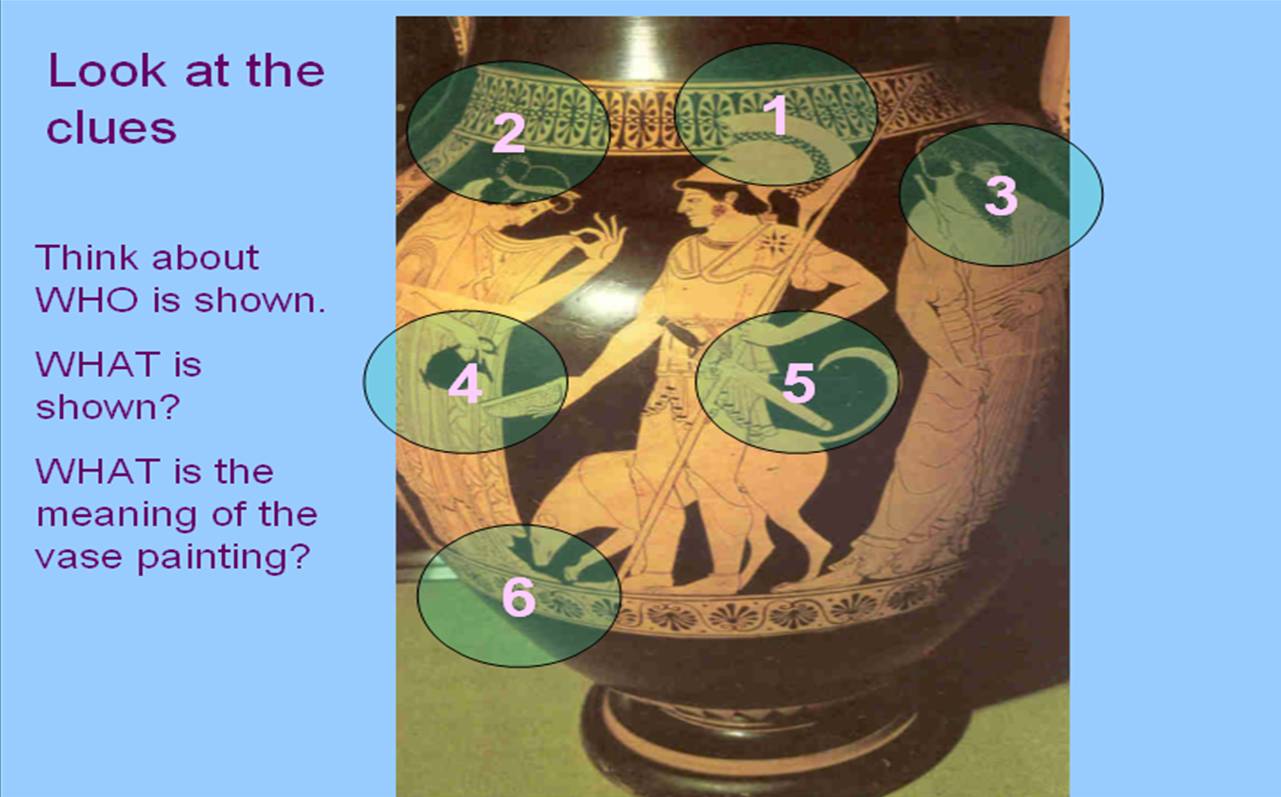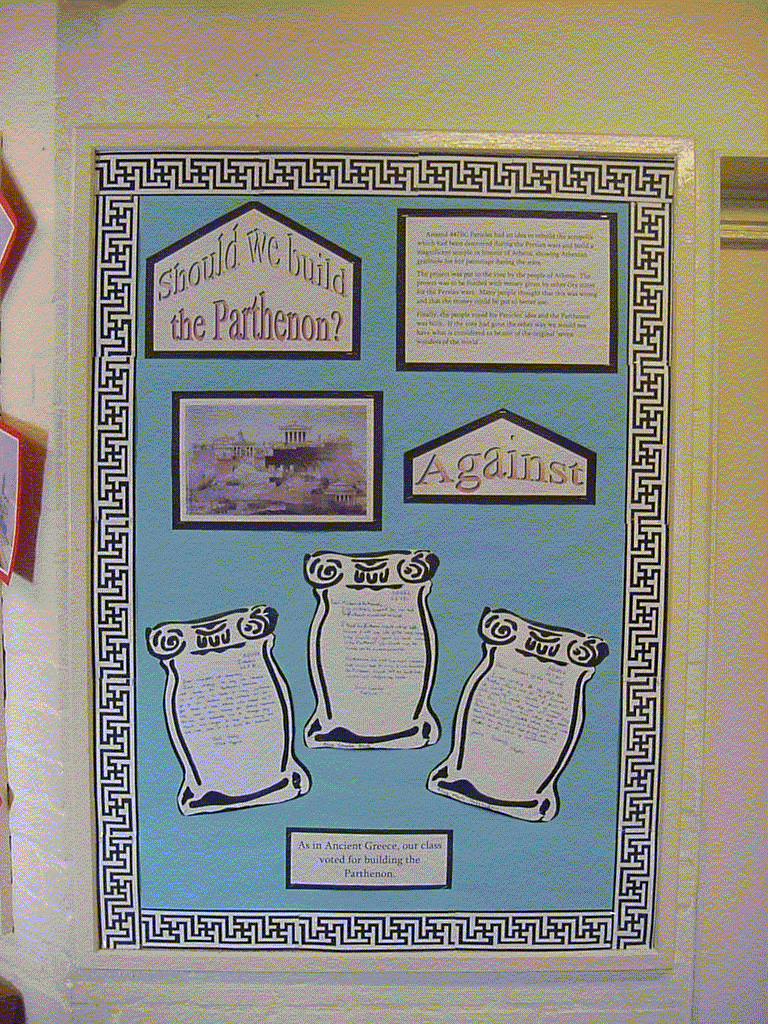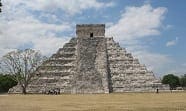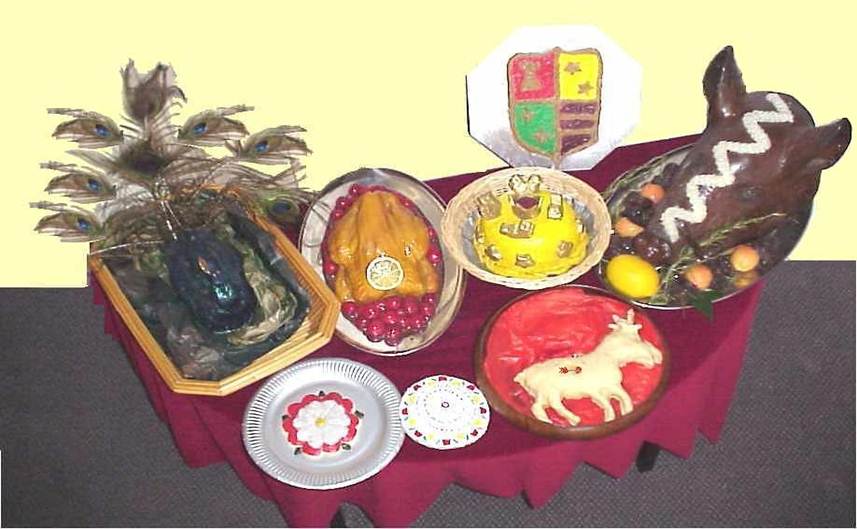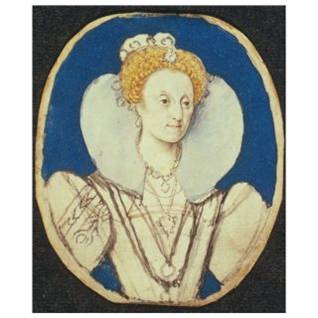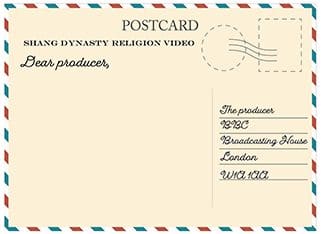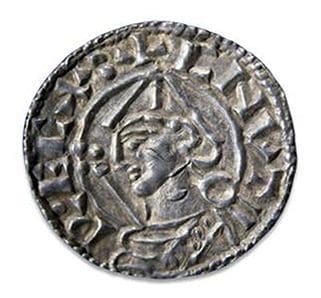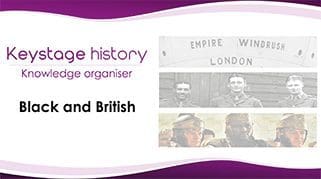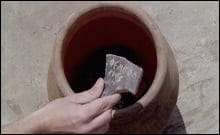
To all intents and purposes, the ancient Greek planning and all the outstanding lessons fit just as perfectly with the current curriculum as well as the existing one. The only difference might be is where schools choose to look at Greek and Roman legacies together as a separate unit in addition to the usual study of ancient Greece. The point of this is that the legacy can best be studied AFTER all other topics so you can see the extent of their influence. See the curriculum models section for example of how this might fit within your overall curriculum. That apart everything else remains the same: focus on beliefs, ways of life, achievements and influence.
Because this is quite demanding stuff, I have chosen lessons on Ancient Greece mainly suitable for Years 5 and 6 and there are some stunners here. The lesson on making ostracons is a fantastic way into Greek democracy. Speaking and listening are massively enhanced through the role play concerning whether to support Pericles’ Millennium dome-like idea to build the Parthenon. Contrasting interpretations are dealt with ingeniously through the lesson on the battle of Marathon which also features an excellent history mystery. For enormous fun potential alone, the ‘Call My Bluff’ and ‘Who wants to be a Millionaire’ approaches to pictures and replica artefacts from Ancient Athens should win you over.
The following Key Stage 2 history lessons have all been judged to be outstanding according to OFSTED criteria. There is a wide variety of teaching and learning activities as well as a rich array of teaching resources including PowerPoint® presentations. New lessons on Ancient Greece will be regularly added to meet the demands of the changing primary curriculum.
Outstanding Lessons
- What can we learn about the Ancient Greeks by studying the Olympics? This lesson goes well beyond simply comparing Olympic events then and now and drives at the heart of what the Olympics meant to the Greeks. (Members Only)
- What was life like for women in Ancient Greece? Children use evidence to come to their own conclusions about the life of Woman in ancient Athens. Were they really kept indoors? (Members Only)
- Making Greek democracy come to life – a “smashing” lesson in which pupils make, and then decipher, real ostracons (Members Only)
- Would you want to be an idiot in Ancient Athens? A role play decision making activity, Should we build the Parthenon?
- How could tiny Athens beat mighty Persia at Marathon? – a history mystery (Members Only) Pupils work in small groups to classify and prioritise sets of information on card giving evidence of Persian weaknesses and Athenian strengths, before comparing their explanation with that offered in the text book/video.
- The answer lies on the pot: where ‘Who wants to be a Millionaire’ meets ‘Call My Bluff’(Members Only) Pupils come up with creative interpretations as to what they think the images on the vases represent.
Smart Task
- What can I do with just one Greek pot in the resource cupboard? (Members Only) Collaborative and creative storyboarding
- Theseus and the Minotaur: Is there any evidence for the legend? (Members Only) Fun smart task with clues to whether the Theseus and the Minotaur legend had any element of truth. Children love finding the 10 ‘buried treasure’ clues and then working out how they relate to the story. Well-differentiated and a great example of pupils using evidence and making high-level deductions.
Resources
Great set of annotated images and notes from British Museum here
Why not start by looking at what museums have created on this topic. If you look under Ancient Civilizations in the show me section of the 24 hour museum, you will find lots of interactive on-line material designed for KS2 pupils.
Prior to the London Olympics of 2012 we added a range of different cameos for KS2 and KS3 showing how the history of the Olympics could be imaginatively integrated into your current teaching which can still be accessed here
